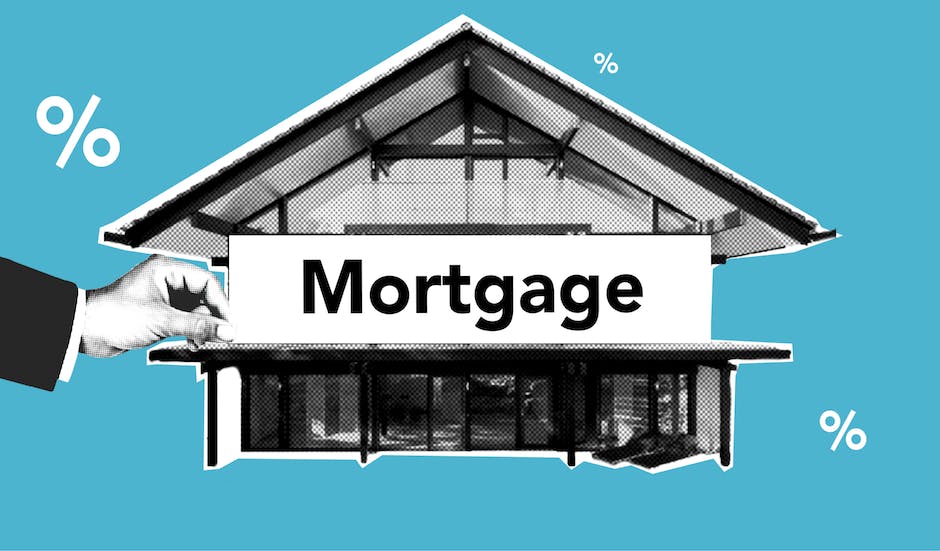By understanding the influencing factors of real estate market trends, you can make more informed decisions about when to buy or sell.
As an ever-evolving and dynamic sector, the real estate market generates opportunities and challenges dictated by numerous variables. Ranging from macro and microeconomic indicators to technological developments, these factors sculpt the terrain of real estate investment. This discourse will provide a comprehensive exploration into the current market trends in residential, rental, and commercial real estate sectors. It will further demystify the key macro and microeconomic factors that modulate the real estate market, and scrutinize the impact of progressive technological advancements within this industry. Finally, it will dissect the significant role of regulatory factors and prospective market predictions in tailoring the investment landscape.
Understanding Current Real Estate Market Trends
Understanding Current Real Estate Market Trends
The dynamics of the real estate market are currently in a state of fluctuation, with a wide array of factors influencing various trends. The ongoing effects of the COVID-19 pandemic, shifting demands, and supply imbalances have considerably shaped the sector. Here we dive into the most critical aspects of housing, rental, and commercial markets along with significant parameters that can affect your investment strategies.
The Housing Market
The housing market has seen an unprecedented surge in the past year due to a combination of low mortgage rates and a boom in remote work. With more people working from home, there has been a significant spike in the demand for more spacious surroundings. However, the supply has struggled to keep up, leading to increased prices. As a result, the market has favored sellers while putting buyers at a disadvantage.
Investors looking to capitalize on the current trends should note that while the scenario might seem discouraging, opportunities for investment remain. However, it requires meticulous market research, identifying regions with stable housing demands, and keeping a close eye on affordable housing initiatives which potentially offer profitable avenues.
The Rental Market
The rental market has also seen interesting shifts, particularly in urban areas. With work-from-home becoming more common, many city dwellers have moved to less-crowded suburbs or even to other states, looking for lower housing costs and a better quality of life. As a result, rents in some metropolitan areas have decreased, while the demand for rental properties in suburban regions has increased.
Investors should pay close attention to these migration patterns and adapt their strategies accordingly. Investing in rental properties in suburbs and smaller towns might be more beneficial in the current scenario than in larger cities.
Commercial Real Estate Trends
Commercial real estate has experienced a slump due to pandemic-related closures. However, certain sectors within commercial real estate are showing promise. For instance, the industrial sector, thanks to the boost e-commerce received amid lockdowns, has seen increased demand for warehouses and distribution centers.
Also, while office spaces saw a dramatic decrease in demand, the need for tailored, flexible office solutions has triggered new investment opportunities. By staying abreast of these trends, savvy investors can find potential investments where others see only risks.
The Impact of Regional Variations
Regional variations play a crucial role in real estate investment. Real estate markets can vastly differ based on location due to factors like local economic conditions, employment opportunities, and population growth. Therefore, investors need to consider these aspects and conduct comprehensive market analyses for each specific region before investing.
The Balance of Supply and Demand
The state of supply and demand balance in the real estate market continually changes and drives price movements. The current shortage of housing supply relative to its demand has resulted in a sharp increase in house prices. Generally, in areas where demand outweighs supply, prices are likely to go up, and this presents a lucrative investment opportunity if the property is later sold when house prices peak.
Grasping an understanding of real estate market trends is truly essential for anyone looking to make well-informed investment choices. As these trends are dynamic, constantly evolving and shifting, it’s a prerequisite for investors to stay informed, and tweak their strategies as necessary. This is the most effective way to maximize investment returns in the long run.

Macro and Microeconomic Factors Affecting the Real Estate Market
Pivotal Macroeconomic Factors Shaping Real Estate Market Trends
For any investor, it’s key to comprehend the macroeconomic contributors that powerfully shape the real estate market. Wide-reaching economic variables such as employment rates, interest rates, economic growth, and inflation all leave a significant mark on real estate market trends and the potential success of your property investments.
The Role of Interest Rates
The impact of interest rates on real estate investments is substantial. When interest rates are lower, borrowing becomes more affordable, creating a spike in buying power for potential homeowners and real estate investors. An increase in demand generally leads to an increase in property prices. On the other hand, when interest rates surge, borrowing gets pricier and demand may decline, which could potentially cause a decrease in property values. In light of this, before deciding to invest in real estate, an investor must always factor in current and projected future interest rates.
Employment Rates and Economic Growth
Employment rates and economic growth are inextricably linked. As more individuals gain employment, disposable income rises, and the demand for real estate can increase. This increased demand often pushes up property values, boosting the return on investment for property holders. Areas experiencing significant economic growth and job creation usually see an upward trend in real estate values. Conversely, areas with high unemployment rates might suffer from lower property values as demand decreases.
Inflation
Inflation, the rate at which general prices for goods and services is rising, also impacts the real estate market. In periods of high inflation, real estate is often considered a safe investment because as prices increase, so too does the value of real estate. However, during periods of deflation or low inflation, the reverse may hold true.
Local Market Conditions
The local real estate market condition is in many ways shaped by supply and demand. If there are more homes for sale than there are buyers, prices are likely to drop. Conversely, if there are more buyers than homes for sale, prices are likely to rise. Investors need to strike a balance between both these conditions.
Demographics
Population demographics, including factors such as age distribution, income levels, population growth rates, and family size, can significantly influence real estate market trends. For example, areas with a high concentration of young professionals might experience a heightened demand for condos or apartments, while regions with many families could see increased demand for single-family homes.
Importance of Geographical Location
The geographical location is a pivotal factor in decision-making in real estate investment. Regions with favorable climate conditions, quality education institutions, easy access to employment markets, and well-established infrastructure generally command higher property values. Consequently, a comprehensive analysis of geographical attributes can equip real estate investors with insightful information that can steer their investment decisions.

Impact of Technological Developments on Real Estate
Technological Evolution Impacting Real Estate Market Trends
It’s crucial to stay informed and updated with the rapidly changing role of technology in the real estate industry, particularly its implications on investment trends. Revolutionary technologies like virtual reality tours, AI-driven data analysis, and digital transaction platforms are revamping traditional real estate operations. While these changes bring exciting opportunities for investors, they also present unique challenges that require careful navigation.
Influence of Virtual Reality on Real Estate
The advent of virtual reality technology has changed how people perceive and interact with properties. Virtual tours can provide a 360-degree view of the property, allowing potential clients to ‘experience’ the property from anywhere in the world. This has cataclysmically impacted how properties are viewed and sold, creating a digitally efficient market which expedites transactions and investments. Furthermore, VR technology can help developers simulate designs and models of future development projects, which can attract forward-looking investors.
AI’s Sweeping Transformations
Artificial Intelligence’s role in the real estate industry is very broad, encompassing data analytics, predictions, automation, and personalized customer services. AI algorithms can predict market trends and asset valuations, offering crucial insights for investors and allowing them to make informed decisions. Beyond this, AI-driven chatbots significantly improve the customer service experience, assisting in lead generation by volunteering property information promptly. This trend encourages increased investment activity, thereby directly influencing the market.
Digital Platforms Reshape Investment Landscape
Digital platforms bring transparency, ease, and speed to the real estate transaction process. These platforms offer a plethora of information regarding prospective properties, including images, descriptions, location, pricing, and reviews – vital factors in an investor’s decision-making process. With these platforms, investors are now capable of carrying out online property auctions and transactions, streamlining their processes and saving considerable time.
Proptech Startups Stir the Real Estate Market
The impact of prop-tech startups on real estate transactions and investments is undeniable. These companies leverage technology to innovate and streamline property management, leasing, and investing processes. Offering services like efficient online platform for property listing, digital contracts management, immediate landlord-tenant communication, automation in rent collection, these start-ups have redefined traditional real estate transactions. This change has made properties accessible to a larger pool of investors, ranging from big institutions to retail investors.
Technological advancements continue to revolutionize the real estate investment landscape, playing a crucial role in shaping the future of market trends. Investors who can effectively adapt and take advantage of these innovative tools are projected to gain significant advantages. Therefore, the role of technology in the evolution of the real estate market is a captivating topic that requires ongoing observation and in-depth analysis.

Regulatory Factors Shaping the Real Estate Market
Understanding the Regulatory Framework in the Real Estate Market
Another essential factor that significantly molds real estate market trends is government regulation. Such rules govern the type, location, and construction of structures, influencing market supply, demand, and pricing dynamics. Some prevalent regulations in this sector range from tax laws and zoning regulations to building codes.
Impact of Tax Laws on Real Estate Investments
Tax laws play an important role in shaping the attractiveness of real estate investments. Historically, preferential tax treatments have bolstered the attractiveness of investing in real estate. For example, the Tax Cuts and Jobs Act of 2017 lowered the corporate tax rate from 35% to 21%, providing potential real estate investors with more capital for investment. Conversely, potential tax hikes can dampen investment enthusiasm, as seen in jurisdictions considering raising capital gains tax rates.
Role of Zoning Regulations
Zoning regulations are another key factor. These determine the use of parcels of land, influencing what type of structures can be built and where. For instance, zoning restrictions that limit high-density building in certain areas can limit supply, driving up property prices in those areas. They also impact the redevelopment potential of properties, influencing their long-term investment outlook. Rezonings, such as those that allow for higher density or mixed-use development, can create lucrative investment opportunities.
Influence of Building Codes
Building codes are essential regulatory gears that keep the real estate market turning. They set minimum standards for building design, construction, quality, safety, and energy efficiency. Changes in building codes can dramatically alter the cost and feasibility of real estate projects. Recently, increasingly stringent building codes, aimed at promoting sustainability and disaster resilience, have emerged as a significant trend. While these new rules can increase upfront costs, they also present opportunities for long-term savings and risk mitigation.
Recent and Upcoming Regulatory Changes
Recently, new regulatory realities have emerged in the real estate market. Major cities in the United States, such as New York and San Francisco, have passed laws capping the number of days properties can be rented out on Airbnb and similar platforms. Such regulations can impact the viability of short-term rental investments.
Looking towards future trends, potential changes in tax laws are on many investors’ radars. Of particular relevance is the discussion surrounding changes to the 1031 exchange rule, which currently allows investors to defer capital gains tax on property sales if proceeds are reinvested in similar properties. If pushed through, changes could decrease the appeal of real estate as an investment vehicle.
Preparing for Investment
Investing in the real estate market is not just about buying and selling properties. It requires strategic understanding about the ever-changing regulatory landscape. To gain the most out of your investments, keeping a pulse check on tax laws, zoning regulations, and building codes becomes foundational. These elements, individually and combined, determine the potential value and attractiveness of investment opportunities in the market.

Future Real Estate Market Predictions and Their Impact on Investment
Understanding Demographic Shifts
Investment opportunities in real estate also rely heavily on changes in demographics. According to the U.S Census Bureau, the average age in the United States is on an uphill trend and currently lies around 38.2 years. This indicates that our population is aging, and their housing needs are evolving. Features like retirement communities and accessibility-equipped properties are likely to surge in demand as the population ages.
What’s more, the COVID-19 pandemic and the advent of remote work have spurred noticeable shifts from urban to suburban living. Consequently, the demand for suburban properties has gained momentum.
For investors, these demographic trends signal a potential shift in the investment landscape. As such, it may be advantageous to focus on opportunities in developing accessible housing and accommodations for senior citizens. Additionally, properties located in suburban locales can prove to be significant growth areas for investment.
Technology: Proptech and Work-from-home culture.
The advancement of technology can greatly impact the real estate market. Proptech, or property technology, is opening up new avenues for real estate transactions. AI, machine learning, big data, and blockchain could potentially enhance property valuation, property management, and the real estate transaction process itself, making it faster and more efficient.
Moreover, work-from-home has grown exponentially since the onset of the COVID-19 pandemic. Consequently, demand for home offices or coworking spaces has gone up. These changes imply that investors who are more adaptive towards technological advancements would have a distinct advantage in the future market.
Environmental Concerns: The Rise of ESG Investing.
Environmental, social, and governance (ESG) considerations are being increasingly incorporated into investment decisions. Future real estate is expected to be more sustainable, energy-efficient, and environmentally friendly. As per the U.S Green Building Council, the green building market is projected to account for more than half of all commercial and institutional construction by 2021.
Here lies a significant opportunity for investors to invest in green buildings, sustainable communities, and properties that have a lower carbon footprint.
Urban Planning: A move towards Smart and Green Cities.
Urban planning is moving towards the idea of smart, green cities. Demand for properties in these environments is likely to be high. Smart cities incorporate technology to enhance the quality and performance of urban services, reduce costs and resource consumption, and engage more effectively with its citizens.
As these cities become a reality, properties within these locales could attract a premium. Investors who understand the future real estate development direction can be better prepared to seize these opportunities when they arrive.
These future predictions can profoundly impact the real estate investing landscape. By understanding these trends, investors can position themselves to get the most out of the changing market.

Understanding the corpus of factors shaping real estate trends today empowers an informed and strategic investment approach. Navigating through these complexities that run the gamut from economic indicators, technological interventions, to regulatory policies contributes towards a more calculated investment decision. Furthermore, having an insight into future real estate predictions facilitates anticipation of market changes, enabling a forward-thinking investment stance. In a world of constant change and evolution, remaining cognizant of these factors and trends ensures a robust and resilient investment strategy in the real estate market.




